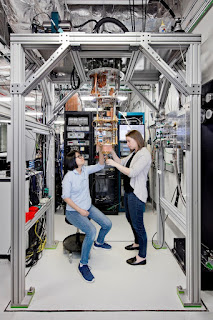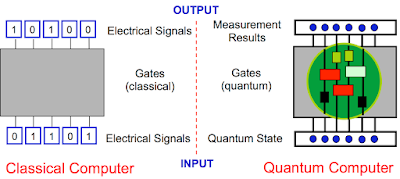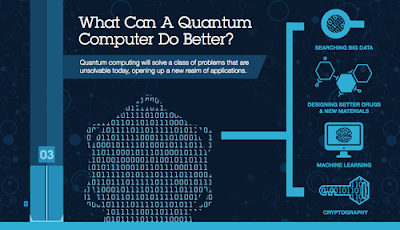Twitter Feed
Cloud Computing Wargames !!
Wikipedia “A wargame is a game that represents a military operation.” “Military simulations, also known informally as war games, are simulations in which theories of warfare can be tested and refined…
How the Government Tweets – An Update
Thanks goes out to Twitter_Tips for a link to Government agencies on Twitter: a few comprehensive sites posted by lindyjb which includes the following: The Government’s A-Twitter: A Comprehensive List…
How the Government Tweets
Last September in “Ambient Awareness. The cloud killer app? ” and ” The Cloud Wins in Minneapolis at the RNC! “, I wrote about how the cloud infrastructure and microblogging…
Bob Gourley on Cloud Computing and NetCentric Operations
Bob Gourley, Crucial Point CTO and former DIA CTO, just posted Cloud Computing and Net Centric Operations on his website CTOvision . In it he outlines how the OSD and ASD NII…
Obama Administration CTO Top Suggestions
Check out the top vote getters for suggestions to the nations’s first CTO! #5 with 5,835 votes Open Government Data (APIs, XML, RSS) We can unleash a wave of civic…
2009 Cloud Computing Events
2009 is off to a fast start with the following events on the horizon! February 2009 – “Bi-Annual On-line Government Cloud Computing Survey”, On-line February 3, 2009 – Open Group…
World Summit of Cloud Computing Virtual Site
The Israeli Association of Grid Technologies (IGT) has made its recent IGT 2008 World Summit of Cloud Computing available on-line. Speakers include: Day 1: Stevie Clifton, Co-Founder & CTO Animoto…
1105 Government Information Group does Cloud Computing
Mark your calendars for April 29, 2009 ! 1105 Government Information Group has announced that there will be a Cloud Computing Conference at the Ronald Reagan Building in Washington, DC.…
Sun Acquires Q-Layer
Yesterday, Sun Microsystems announced their acquisition of Q-layer. This Belgium based company automates the deployment and management of both public and private clouds. In the press release, David Douglas, SUN’s…
- The release of a new API (Application Program Interface) for the IBM Quantum Experience that enables developers and programmers to begin building interfaces between its existing five quantum bit (qubit) cloud-based quantum computer and classical computers, without needing a deep background in quantum physics.
- The release of an upgraded simulator on the IBM Quantum Experience that can model circuits with up to 20 qubits. In the first half of 2017, IBM plans to release a full SDK (Software Development Kit) on the IBM Quantum Experience for users to build simple quantum applications and software programs.
The IBM Quantum Experience enables anyone to connect to IBM’s quantum processor via the IBM Cloud, to run algorithms and experiments, work with the individual quantum bits, and explore tutorials and simulations around what might be possible with quantum computing. Since its launch less than a year ago, about 40,000 users have run over 275,000 experiments on the IBM Quantum Experience. It has become an enablement tool for scientists in over 100 countries and, to date, 15 third-party research papers have been posted to arXiv with five published in leading journals based on experiments run on the Quantum Experience.
 The broad availability of quantum computing capability could prove to be a significant blow to current data encryption practices. In 2015 the US National Security Agency actually advised US agencies and businesses to prepare for a time when the cryptography protecting virtually all e-mail, medical and financial records, and online transactions would be rendered obsolete by quantum computing. The US National Institute for Standards and Technology (NIST) is also running a competition to spur work on post-quantum algorithms.
The broad availability of quantum computing capability could prove to be a significant blow to current data encryption practices. In 2015 the US National Security Agency actually advised US agencies and businesses to prepare for a time when the cryptography protecting virtually all e-mail, medical and financial records, and online transactions would be rendered obsolete by quantum computing. The US National Institute for Standards and Technology (NIST) is also running a competition to spur work on post-quantum algorithms. - Drug and Materials Discovery: Untangling the complexity of molecular and chemical interactions leading to the discovery of new medicines and materials;
- Supply Chain & Logistics: Finding the optimal path across global systems of systems for ultra-efficient logistics and supply chains, such as optimizing fleet operations for deliveries during the holiday season;
- Financial Services: Finding new ways to model financial data and isolating key global risk factors to make better investments;
- Artificial Intelligence: Making facets of artificial intelligence such as machine learning much more powerful when data sets can be too big such as searching images or video; or
- Cloud Security: Making cloud computing more secure by using the laws of quantum physics to enhance private data safety.
This content is being syndicated through multiple channels. The opinions expressed are solely those of the author and do not represent the views of GovCloud Network, GovCloud Network Partners or any other corporation or organization.
( Thank you. If you enjoyed this article, get free updates by email or RSS – © Copyright Kevin L. Jackson 2017)
Cloud Computing
- CPUcoin Expands CPU/GPU Power Sharing with Cudo Ventures Enterprise Network Partnership
- CPUcoin Expands CPU/GPU Power Sharing with Cudo Ventures Enterprise Network Partnership
- Route1 Announces Q2 2019 Financial Results
- CPUcoin Expands CPU/GPU Power Sharing with Cudo Ventures Enterprise Network Partnership
- ChannelAdvisor to Present at the D.A. Davidson 18th Annual Technology Conference
Cybersecurity
- Route1 Announces Q2 2019 Financial Results
- FIRST US BANCSHARES, INC. DECLARES CASH DIVIDEND
- Business Continuity Management Planning Solution Market is Expected to Grow ~ US$ 1.6 Bn by the end of 2029 - PMR
- Atos delivers Quantum-Learning-as-a-Service to Xofia to enable artificial intelligence solutions
- New Ares IoT Botnet discovered on Android OS based Set-Top Boxes




